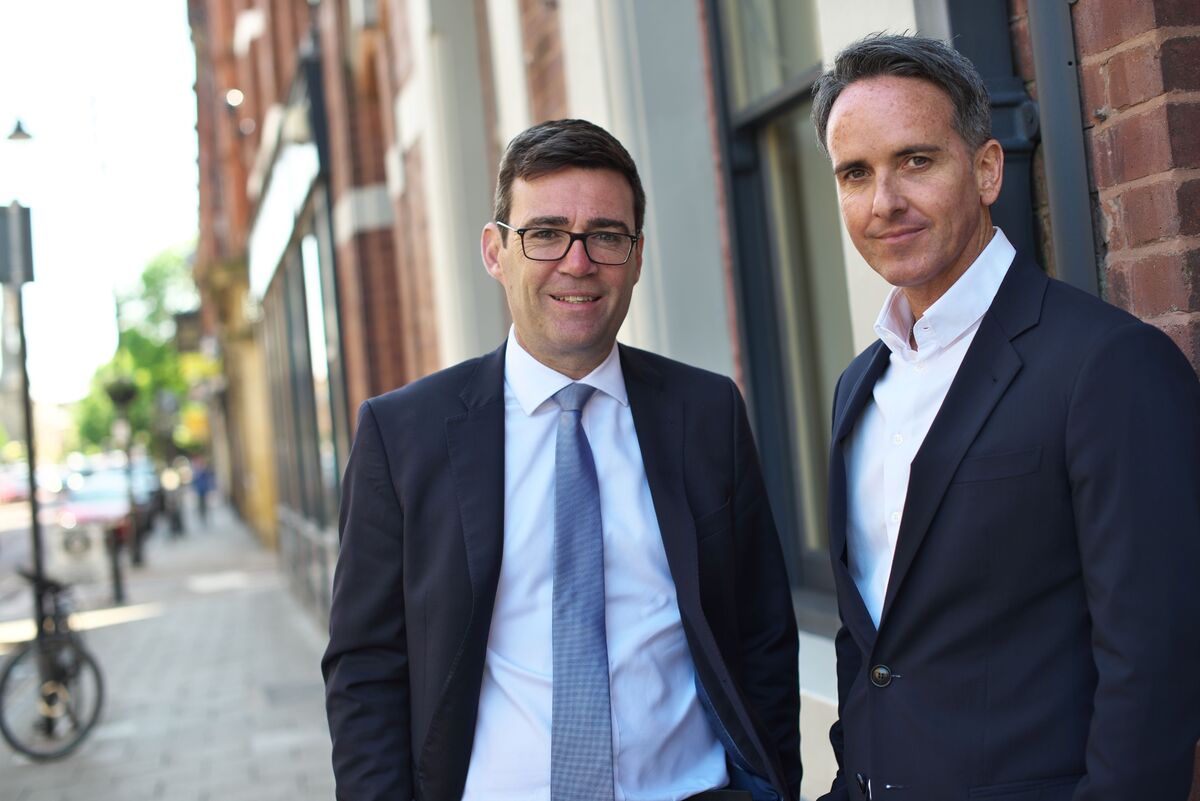Top 100: Alastair Storey, WSH
Overall ranking: 1 (1 in 2012)
Foodservice ranking: 1 (1 in 2012)
Snapshot
Alastair Storey founded WSH in 2000 with a vision: to create a new catering proposition in the marketplace, focusing on fresh, seasonal food, great service and a commitment to training excellence.
Today that ambition has put Storey at the helm of the largest independent catering business in the UK. As chairman and chief executive of WSH International Investments, he oversees a group that includes B&I caterer BaxterStorey, café-deli concept Benugo, venue restaurant and bar business Searcys, education caterers Holroyd Howe and Caterlink, and reception management service Portico.
Latterly, WSH has expanded its public dining offer thanks to collaborations and joint ventures with chefs John Campbell (the Woodspeen restaurant and cookery school, Berkshire), Mark Hix (Restaurants Etc) and Le Gavroche alumni Monica and David Galetti (Mere, London). Organic growth among the group's subsidiaries saw WSH propel itself over the £700m turnover mark for the first time, reaching a new high of £732m in 2016.
What we think
When Alastair Storey was named the most powerful and influential person in hospitality in The Caterer's 2012 Top 100, he toppled celebrity chef, healthy-eating champion and all-round household name Jamie Oliver from his two-year run on the top spot.
The accolade was undoubtedly well deserved, but the fact that Storey has maintained this level of clout six years on speaks volumes. If anything, his presence and influence in the industry has grown, and while The Caterer's Top 100 list went on a break until now, Storey absolutely did not.
Instead, his efforts to continue growing the WSH empire stepped up a gear, with the acquisition of Searcys in 2014 and the move into high-end restaurant operation. This is despite his insistence during an interview, also in 2014, that the company is more focused on good customer service and creating career opportunities than financial targets. "Obviously we like growth; growth is fun," he added. Indeed, it must be with figures like WSH's.
Annual turnover at WSH has risen steadily from £406m in 2011 to £732m in 2016, increasing by a staggering 80.3% in just five years. This is thanks to a retail-focused approach to the sector alongside a commitment to investing in people that has seen WSH personnel recognised for their training and development work on three separate occasions at the Foodservice Cateys.
With a savvy strategist and sharp business mind, Storey's influence on the foodservice industry is vast. The acquisition of high street café-deli brand Benugo in 2008 was a game-changer for the B&I sector and it didn't take long for WSH rivals to go down similar routes to varying degrees of success.
Storey is just as much a fervent champion of the hospitality industry outside of his WSH activities. In addition to being a patron of the Edge Hotel School, he helped to launch and acts as chairman of the trustees of the front-of-house-focused Gold Service Scholarship. In 2016 he was named president of the Institute of Hospitality, and in the same year he became the first foodservice operator to be inducted into the British Travel & Hospitality Hall of Fame, organised by The Caterer in partnership with its sister brand Travel Weekly Group.
The Caterer interview
In a difficult economic climate, WSH has flourished. Alastair Storey shares his formula for rapid growth and sustained success with James Stagg
Once again, the business achieved double-digit growth in the last published results (the year to December 2016) with turnover breaking the £700m mark. How do you maintain the momentum?
Our accounts for 2017 will actually be significantly over £800m. It certainly gets harder and itâs not sustainable to get hooked into an obsession with growth. And I donât think that should be the purpose of the business, but itâs a difficult one. If you have good people with ambition, they naturally find new ways to get new business.
Thatâs the advantage of us being a private company. Weâre not obsessed by growth, but itâs the sign of a good, energetic business.
There has been a significant amount of consolidation in the past two years in contract catering, with medium-sized operators being snapped up. How do you see the market now â" is it the top five or six who are all competitors and then the rest picking off the smaller business?
I donât see that. Different companies have different offers. Iâm very pro-competition. Itâs a very competitive market and I have great respect for our competitors. We all describe ourselves a little differently, but itâs healthy that the customer has a choice; it keeps us on our toes.
Does the lack of new entrants stifle innovation in the market?
I think there are still plenty of businesses entering the market. The other thing is asking who your competitors are. We are trying to sell products and services to customers directly on the high street and through business and industry clients, so our competitor is the coffee shop on the high street, restaurants, street food. If anything, competition is better than it was.
The business remains independent, but being so large itâs inevitably more difficult to differentiate from the other main players. How do you continue to set yourself apart?
We donât have one large business. We have a number of completely autonomous operating companies which all have their own style.
If you think about Benugo, itâs completely different from BaxterStorey. And happy days, I want it to be. We have never felt the need to tell them how they should seek out their future. I donât want the businesses to be the same, I want them to be distinctive. People choose them for different reasons.
How do you keep in touch with whatâs going on on the ground? Do you ever drop into sites unannounced?
I meander around London in particular and talk to my colleagues every day. Weâre a close family in many ways. The business must have a family feel. The customer is in charge of the business and the people with the most contact with the customer must have our support.
As a major employer in the country, whatâs your view on Brexit and its potential impact on the foodservice sector?
We are where we are, so thereâs no point raking over the coals. But I have the advantage of having been in the industry a long time. When I started in the 70s, we didnât have access to some of the great sources of labour that weâve had in recent years. If you look at what happened with UK hospitality and tourism â" we used to be, shall we say, not at the top of the league. And now you look at London and itâs an innovative, happening, cool place to be. Much of that was fuelled by being an open market. So my personal concern is that we lose that openness that has created this vibrant and exciting sector. As an industry we need to keep being vocal about having access to great labour.
You have recently launched an academy to teach five-star service to complement your barista and chef academies. Was this inspired by the Gold Service Scholarship?
It would have come naturally. Weâve set up the business based on fresh, British seasonal produce and in order to use great produce well you need skilled staff and to invest in training. So the academy work is at the core of what we do. We started with the chef academy with John Campbell and Rick Razza, who are both incredibly inspirational.
Weâve just invested in another barista academy in our new offices at Grayâs Inn Road, London. We wanted to make it visible, so it says something about what weâre doing. And weâve got graduate academies and leadership academies, to develop people and lead then through the organisation. The latest one, the service academy, is the latest part of the jigsaw.
In terms of the Gold Service Scholarship, this had so much support from the wider industry. Itâs an opportunity to showcase the best the industry has to offer. We, as in the founders, are delighted with the way itâs gone. The calibre of the entrants is amazing. They are seriously good and are a great advert for the industry.
The restaurants division is one side of the business that has grown significantly. Is this a particular focus for WSH?
Itâs about not seeing yourself in a narrow segment, but by gaining experience in all segments. All areas of hospitality have elements to share.
If you look at mid-market restaurants, there are challenges. But people who understand these and are match fit to take them on can apply the lessons to other parts of the business. We are just in the hospitality sector, but not beyond it. If you want to be outstanding, you have to be focused.
There are significant headwinds in that space now, so do you see growth for businesses such as Searcys and the Restaurants Etc partnership with Mark Hix, or is it a case of consolidation?
We only want to see growth. Thereâs no point complaining about headwinds, thatâs the game. I love F1 and in that sport, drivers donât get into the car thinking itâll be a breeze. Itâs competitive. Thatâs the excitement of it. Itâs not comfortable and it shouldnât be.
Is it the competition that drives you?
Fear of failure is always what pushes you on. Thereâs no need to be macho about it, but you must want to succeed and be on top of your game and be better than anyone else. That should be your goal. If you get grand about yourself, thatâs where you lose the plot. You need to think about the customer and think about the teams that support the customer â" thatâs where the action is.
You received an OBE, are president of the IoH, and a founder of the Gold Service Scholarship. How important is it to be involved in the hospitality industry as a whole?
All of us have a role to play. All our livelihoods depend on the health of the industry and you should have an opinion about it. We should promote it. We wonât all agree, thatâs for sure, but thatâs OK â" itâs the nature of a diverse and creative industry. But itâs a good thing to try to contribute. Itâs also important to be vocal about the things that matter, like where we get good quality staff from.
Youâre still very much on top of your game, but youâve reached what some consider to be retirement age. Do you have any plans to take a step back? Is there a succession plan in place?
Iâve said it before but my father retired when he was 86, so on that basis Iâve got some way to go. If Iâm not healthy and motivated then Iâd be the first one to say âout of the wayâ, but I love what I do and I get a lot of energy out of the business. Iâve never understood why people keep looking at the finishing line. There are plenty of things Iâm interested in, but I like working.
â¨Further information
Alastair Storey and Tommy Miah rewarded in Queenâs Birthday Honours >>â¨
â¨Alastair Storey to become new president for Institute of Hospitality >>â¨
The Roux Brothers, Alastair Storey and Robin Hutson inducted into the Hall of Fame >>


















